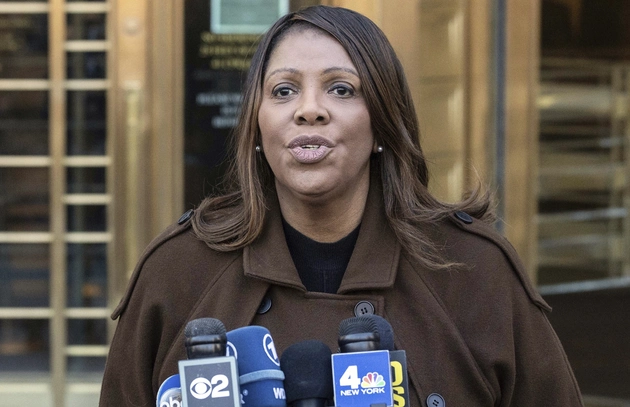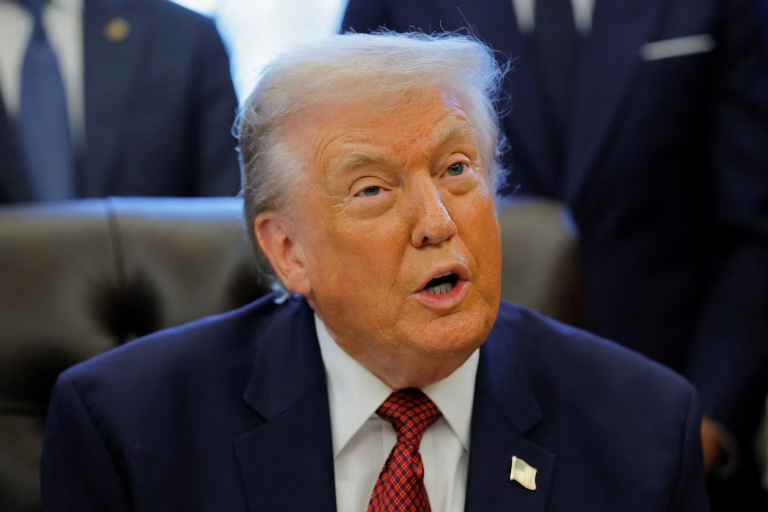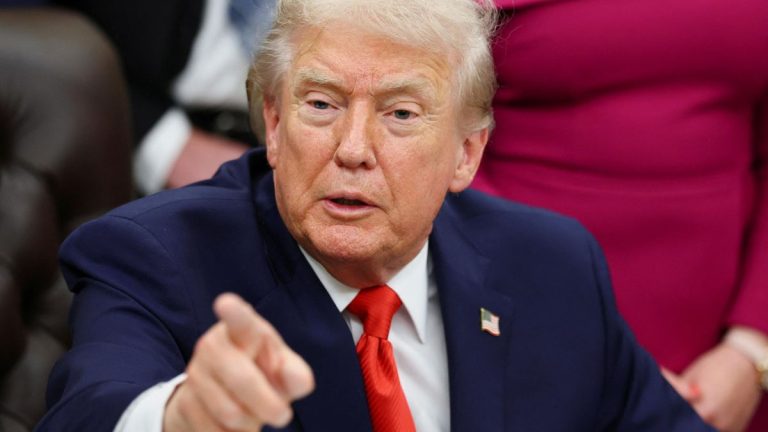New York Attorney General Letitia James, a prominent political figure and long-time advocate for government accountability, is facing federal charges related to her 2020 home purchase in Norfolk, Virginia. The indictment, which was handed down in October 2025, marks a significant development in James’ legal and political career, drawing national attention due to her high-profile role in politics and her previous involvement in investigations of prominent figures.
Background and Early Career
Letitia James has served as the Attorney General of New York since 2019, after previously holding the office of New York City Public Advocate. Throughout her career, she has focused on consumer protection, public integrity, and civil rights, often taking on complex cases involving large institutions and public figures. James’ tenure has been marked by investigations into financial misconduct, corporate malfeasance, and political accountability. She has also been vocal in criticizing former President Donald Trump and has participated in multiple legal actions against him, earning both praise and criticism from different political quarters.
James’ professional trajectory has been characterized by an emphasis on legal oversight and reform. Her work in the Attorney General’s office has encompassed regulatory enforcement, litigation, and policy initiatives designed to promote transparency and accountability in government and business practices. Over the years, she has gained a reputation for tenacity and an assertive approach to public service.
Details of the Indictment
The federal indictment alleges that James made false statements to a financial institution and engaged in bank fraud in connection with her purchase of a second home in Norfolk, Virginia, in 2020. Specifically, the charges center on the assertion that James misrepresented information to secure more favorable mortgage terms. The indictment consists of two counts: one count of bank fraud and one count of making false statements to a financial institution. Each charge carries significant potential penalties under federal law.
The legal process has moved forward with James appearing in federal court in Norfolk, Virginia, to answer to the charges. She has entered a plea of not guilty to both counts. The court has scheduled her trial for January 26, 2026, allowing time for pre-trial motions, discovery, and other procedural matters. During this period, both the prosecution and defense are expected to prepare their cases thoroughly, gathering evidence, interviewing witnesses, and filing any relevant motions to shape the trial’s scope and focus.
Legal Context and Precedent
Bank fraud and making false statements to financial institutions are serious federal offenses, governed by statutes designed to maintain the integrity of the nation’s financial system. Bank fraud is typically prosecuted under 18 U.S.C. § 1344, while false statements are addressed under 18 U.S.C. § 1014. Convictions under these statutes can carry significant penalties, including substantial fines and long-term imprisonment. Federal courts carefully evaluate the sufficiency of evidence, the intent of the accused, and the procedural compliance of all parties involved.
In high-profile cases such as James’, federal prosecutors must adhere to strict legal standards, including the burden of proof beyond a reasonable doubt. The case may also involve complex documentation, financial records, and mortgage agreements that require expert analysis. Federal judges oversee the proceedings to ensure that trials are conducted fairly, that evidentiary rules are applied consistently, and that the rights of the accused are protected throughout the process.
Career Implications
The indictment has significant implications for James’ career, both as a public official and as a political figure. While federal charges do not automatically result in removal from office, they can affect public perception, political credibility, and the ability to carry out official duties. As Attorney General, James holds a position of considerable responsibility, overseeing legal actions, public investigations, and enforcement efforts across the state. An ongoing legal case can influence how constituents, colleagues, and political observers view her ability to execute these responsibilities effectively.
Historically, public officials facing criminal charges have had to navigate a delicate balance between defending their legal rights and maintaining their professional duties. The timing of trials, the nature of the charges, and media coverage can all impact the broader political landscape, potentially affecting elections, appointments, and policy initiatives.
Federal Prosecution and Office Dynamics
The Eastern District of Virginia is overseeing James’ federal case, a jurisdiction with a history of handling complex financial and political prosecutions. The U.S. Attorney’s Office, responsible for prosecuting federal crimes in the district, has been involved in managing investigative efforts, preparing charges, and presenting cases to grand juries. Grand jury proceedings are a standard part of federal criminal investigations, used to determine whether sufficient evidence exists to formally charge an individual with a crime.
In James’ case, internal procedures have been followed to review evidence and ensure that legal standards for indictment are met. Federal prosecutors typically review documentation, interview witnesses, and consult with subject matter experts to confirm the validity of allegations. The legal system maintains checks and balances designed to prevent abuse, including judicial oversight and opportunities for the defense to challenge procedural or evidentiary issues.
Public and Political Response
The indictment has attracted significant media coverage, reflecting James’ prominence and the political implications of the case. Responses have varied across political and public spheres. Supporters emphasize her long-standing commitment to public service and the importance of allowing due process to proceed without prejudice. Critics have highlighted the serious nature of federal charges, underscoring the potential consequences for public trust and government accountability.
Political analysts note that high-profile federal cases involving elected officials often generate scrutiny not only for the individual but also for the institutions they represent. Observers monitor the proceedings for adherence to legal norms, impartiality in prosecutorial decision-making, and the potential influence of public perception on legal and political outcomes.
Legal Process and Next Steps
As the case moves toward trial, several legal procedures will unfold. These include pre-trial motions, discovery exchanges, and potential plea negotiations. The discovery process will involve sharing relevant documents, financial records, and witness statements between the prosecution and defense. Both sides may seek expert testimony to clarify technical or financial matters related to mortgage documents, lending practices, or financial disclosures.
Pre-trial hearings provide opportunities to challenge evidence, resolve procedural disputes, and clarify the scope of the trial. Jury selection will follow established protocols, ensuring that impartial jurors are chosen to hear the case. The trial itself will include opening statements, witness testimony, cross-examination, and closing arguments. Ultimately, a jury or judge will determine the outcome based on the evidence presented and the applicable legal standards.
Conclusion
The federal indictment of Letitia James represents a significant legal event with wide-ranging implications for her career, the political environment, and public trust in government institutions. While James maintains her innocence and has entered a not guilty plea, the case will proceed through the judicial system in accordance with federal law and procedural standards.
This case illustrates the interplay between legal accountability, public office, and political scrutiny. As the trial date approaches, it will serve as a test of the justice system’s ability to handle complex, high-profile cases while maintaining fairness, transparency, and due process. For James, the proceedings will be a pivotal moment, influencing her professional trajectory, public reputation, and ongoing role as a political leader.
The legal and procedural developments surrounding this case underscore the importance of adhering to federal statutes, maintaining integrity in public office, and ensuring that all parties—prosecution, defense, and judiciary—operate within established legal frameworks. As the nation follows the case, it offers an opportunity to examine how federal courts manage allegations against prominent officials and balance the principles of justice with public interest.

Emily Johnson is a critically acclaimed essayist and novelist known for her thought-provoking works centered on feminism, women’s rights, and modern relationships. Born and raised in Portland, Oregon, Emily grew up with a deep love of books, often spending her afternoons at her local library. She went on to study literature and gender studies at UCLA, where she became deeply involved in activism and began publishing essays in campus journals. Her debut essay collection, Voices Unbound, struck a chord with readers nationwide for its fearless exploration of gender dynamics, identity, and the challenges faced by women in contemporary society. Emily later transitioned into fiction, writing novels that balance compelling storytelling with social commentary. Her protagonists are often strong, multidimensional women navigating love, ambition, and the struggles of everyday life, making her a favorite among readers who crave authentic, relatable narratives. Critics praise her ability to merge personal intimacy with universal themes. Off the page, Emily is an advocate for women in publishing, leading workshops that encourage young female writers to embrace their voices. She lives in Seattle with her partner and two rescue cats, where she continues to write, teach, and inspire a new generation of storytellers.









